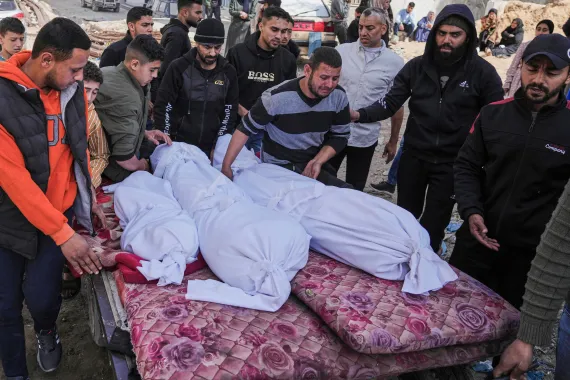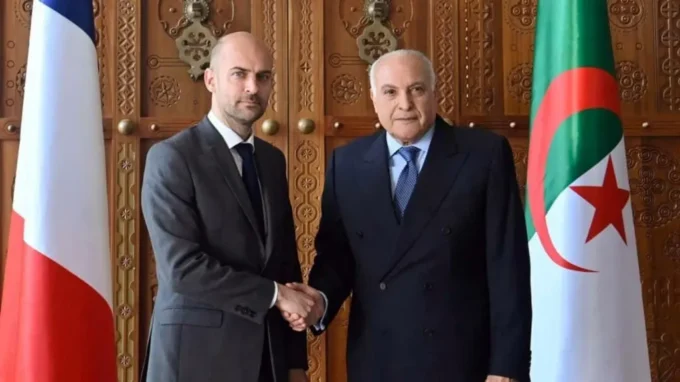Tanzania’s political landscape continues to face turmoil as opposition leaders Freeman Mbowe and Tundu Lissu of the main opposition party Chadema were detained during anti-government protests in Dar es Salaam on September 23, 2024. The demonstrations were organized to condemn a recent wave of kidnappings and killings that have sparked fear across the nation. The arrests underscore a growing crackdown on dissent as the country heads towards local elections in December and a national vote in 2025.
Opposition Leaders Arrested Amid Protests
Chadema’s chairman, Freeman Mbowe, was detained by police while on the streets of Dar es Salaam, moments after he arrived to lead a peaceful protest. Simultaneously, Tundu Lissu, the party’s deputy chairman, was arrested at his home in what appears to be a coordinated effort by authorities to stifle opposition voices. Both leaders were taken into custody without clear explanations from the police, raising concerns about the government’s commitment to democratic principles and human rights.
According to Tanzanian police, 14 people, including Mbowe and Lissu, were arrested for defying a ban on protests that had been issued by authorities ahead of the planned demonstrations. The protests were intended to highlight the alleged abductions and killings of government critics, which have increased in recent months, fueling fears of a shrinking space for political opposition in Tanzania.
Rising Concerns Over Human Rights Abuses
Rights groups and political observers have expressed alarm over the government’s actions, accusing President Samia Suluhu Hassan’s administration of targeting opponents to suppress dissent ahead of crucial elections. Although Hassan’s government has previously asserted its commitment to democracy and denied any involvement in brutality, the repeated arrests of opposition figures tell a different story.
Chadema, in a statement shared on social media platform X, reported that Mbowe was arrested in the Magomeni area of Dar es Salaam shortly after arriving at the protest site. Lissu was taken by a convoy of 11 vehicles from his residence, with authorities failing to disclose his destination. The pair, along with hundreds of their supporters, were also briefly detained last month in a similar clampdown on opposition activities.
A History of Violence Against Opposition Figures
Tundu Lissu’s arrest comes with a particularly troubling context. In 2016, Lissu survived an assassination attempt in which he was shot 16 times, an attack widely believed to be politically motivated. His survival and continued activism have made him a prominent symbol of resistance against government oppression in Tanzania. The latest crackdown on him and other opposition leaders suggests that threats to political freedoms in the country are far from over.
Earlier this month, another senior Chadema member was abducted while traveling on a bus, and his body was later discovered bearing signs of torture, including acid burns on his face. These incidents have created an atmosphere of fear and intimidation, with many Tanzanians concerned that opposition members and critics of the government are being systematically targeted.
Government Silence Amid Growing Tensions
The Tanzanian government has yet to comment on the arrests of Mbowe and Lissu, continuing a pattern of silence on issues concerning opposition crackdowns. While the government has previously claimed to uphold democratic values, these repeated detentions cast a shadow over those assertions, raising questions about the state of civil liberties in the country.
As Tanzania approaches its next electoral cycle, the stakes are high. The recent arrests serve as a stark reminder of the challenges faced by opposition parties and activists in their fight for political space and accountability. With local elections just months away and a national vote on the horizon, the eyes of the world will be on Tanzania to see whether it can navigate this critical period without further eroding its democratic foundations.
The international community, including human rights organizations, has urged President Hassan’s administration to respect the rights of all citizens to freely express their political views and to ensure that opposition leaders are not targeted for exercising their democratic rights. As tensions rise, the situation in Tanzania highlights the fragile state of democracy in the region, with urgent calls for transparency, accountability, and respect for human rights at the forefront of the discourse.














Leave a comment